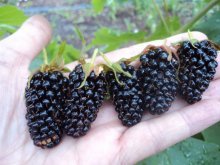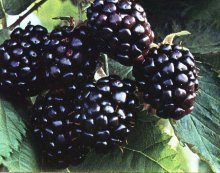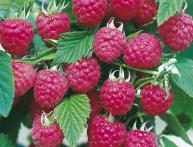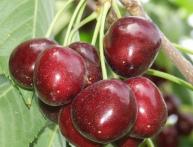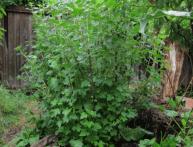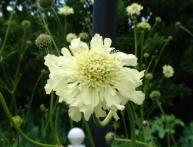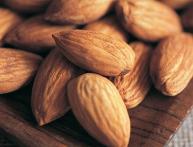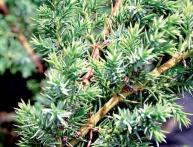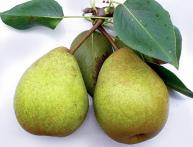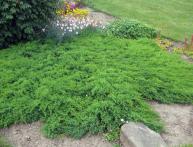Reasons for the popularity of Chester blackberries in the world, description of the variety, planting and care
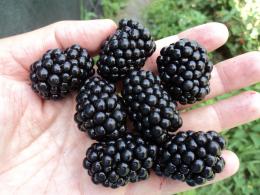
Despite the fact that blackberries are widespread on the American and Eurasian continents, this crop is still most popular in the United States, where it is grown on an industrial scale. The Chester Thornless blackberry has no thorns and is very popular in America, especially in Oregon, where 82% of the industrial area devoted to blackberries, is occupied by this particular variety.
In recent years, China has taken the leading place in the cultivation of this variety; here, too, up to 90% of the area is allocated to the Chester variety. It is noteworthy that the climate in Australia allows chester to be grown in the off-season and the berries to be exported to other countries. Despite the fact that the variety is one of the best commercial varieties, amateur gardeners are also interested in it. Let's try to understand what outstanding properties this variety of blackberry has and its suitability for growing it on personal plots.
Content:
- Blackberry Chester Thornless, variety description
- Planting and caring for Chester blackberries in the garden
- The use of chester blackberries in folk medicine
Blackberry Chester Thornless, variety description
For amateur cultivation, the Chester variety is attractive for the following:
- absence of thorns
- high, up to - 30 degrees, frost resistance
- productivity
- unpretentiousness
- taste and size of berries
Frost resistance can be explained by late flowering and, accordingly, flower buds are not damaged by spring frosts, as in other varieties. The variety was obtained in the USA by crossing the erect blackberry variety Darrow and the semi-creeping variety Thornfree.
The variety's bushes are powerful, 2 to 3 m long, with spreading shoots. The branching of the variety is strong, it begins from the lowest buds. This significantly increases productivity. The leaves are trifoliate, dark green. The flowers are white or white-pink. The formation of berries begins in early August. The variety is a mid-late and very productive variety among non-thorny blackberry varieties.
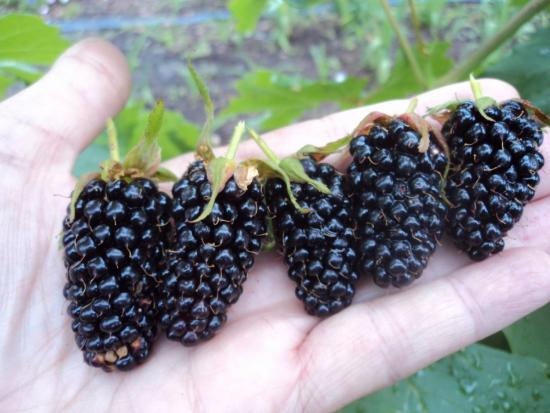
Fully ripe berries become rich black in color with shiny skin; this occurs in the second to third ten days of August. The shape of the berries is an elongated cone. Their size is large, up to 3 cm long, weighing up to 8 g. The type of berry is a juicy drupe. The berries are collected in numerous clusters. The taste is pleasant, sweet with a slight sourness.
About 30 tons of blackberries can be harvested from one hectare varieties chester. The transportability and presentation of the berries are high. As a drawback, extended fruiting can be noted, which requires harvesting ripening berries every 5 - 6 days. We will try to understand the features of agricultural technology and find out what difficulties gardeners face when growing Chester blackberries.
Planting and caring for Chester blackberries in the garden
Soil and lighting
When choosing a site where Chester blackberries will be planted, it is better to give preference to places with loamy and sandy loam soils, with good water and air permeability. The soil should be neutral or slightly acidic. It is better to avoid areas where potatoes, tomatoes, eggplants or other nightshade crops previously grew.
Blackberries prefer well-lit places; you should not plant them in dense shade, but places with continuous lighting for many hours are also not suitable. It's best if the sun shines well landings up to 6 - 7 hours a day.
Planting material, propagation
It is most convenient and reliable to purchase and use seedlings with a closed root system. If the seedlings have bare roots, then the damaged and dried roots are removed, then the roots are dipped in a mixture of clay and water. If the variety is already growing on the site, then it can be propagated by bending the shoot with its tip to the ground and securing it. When rooting occurs, the daughter plants are separated and replanted. You can also take cuttings and root them. Seeds of this variety are not planted in amateur gardening.
Video about growing Chester blackberries:
Planting and caring for chester blackberries
The best time for planting is spring. The size of the planting hole depends on the size of the seedling and its roots. On average, the depth and width of the hole should be about 30 cm. Part of the excavated fertile soil is mixed with humus; about 5 kg of it is needed and a spoonful of any complex mineral fertilizers. The bottom of the hole and the roots of the seedling are covered with this mixture. The root bud should be approximately 3 - 4 cm below soil.
The ground part of the planted shoot is cut off, leaving no more than 20 - 25 cm. The plant is watered and the planting site is mulched with bark or pine needles. Blackberries are grown by securing them to a trellis. The first pruning is carried out two years after planting, then annually.
Blackberries tolerate dry periods well and do not require additional watering. Fertilizers are applied once every 3-4 years, but loosening the soil and removing weeds must be done several times a season.In autumn, the shoots are removed from the trellises, laid on the ground and covered with spruce branches or other material. Sometimes they practice complete removal of the shoot after fruiting has ended. Chester blackberries are popular not only because of their unpretentiousness, but also because they have medicinal and dietary properties.
The use of chester blackberries in folk medicine
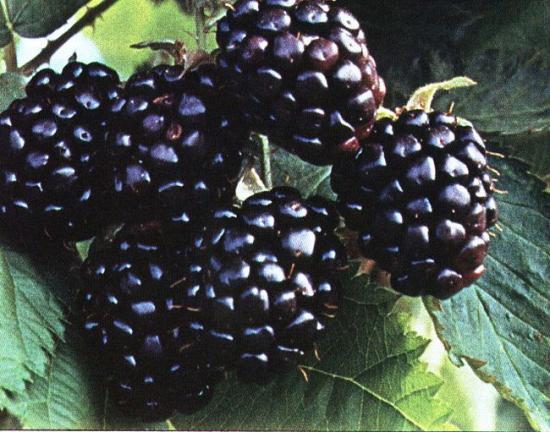
Fresh berries are recommended for consumption for metabolic disorders. From fresh berries, collected together with stalks and green leaves, you can prepare a decoction that is good for high blood pressure and atherosclerosis. For these purposes blackberries You can prepare it for future use by drying its leaves and berries. An infusion of dried blackberries and their leaves will help with gastrointestinal diseases, colds and inflammatory processes.
In cooking, blackberries are used for fillings and desserts. You can also use them to cook and make compotes, preserves and jams for future use. Taking into account the fact that Chester blackberries have many advantages, it can be recommended to grow them both for personal consumption and for sale.

